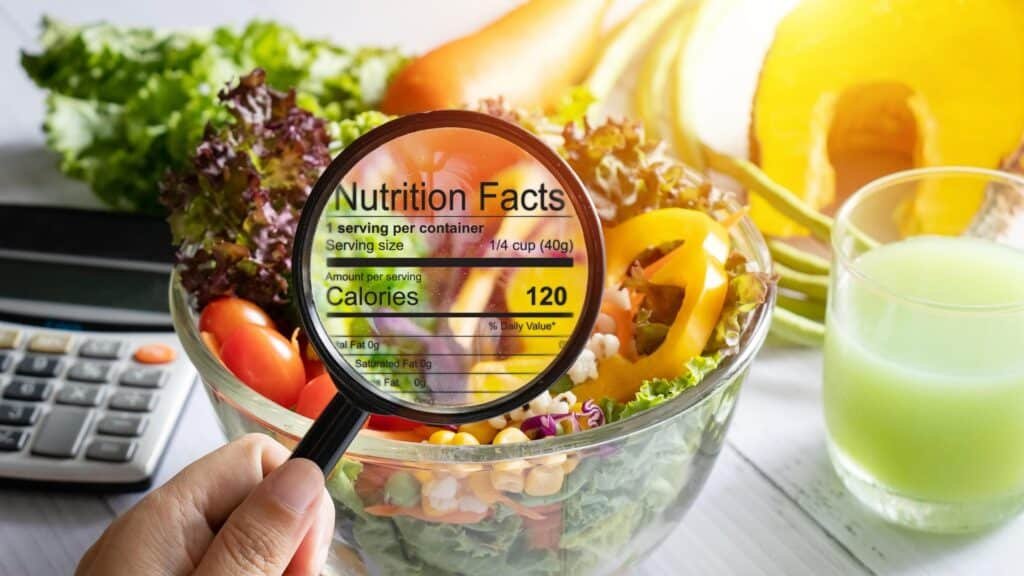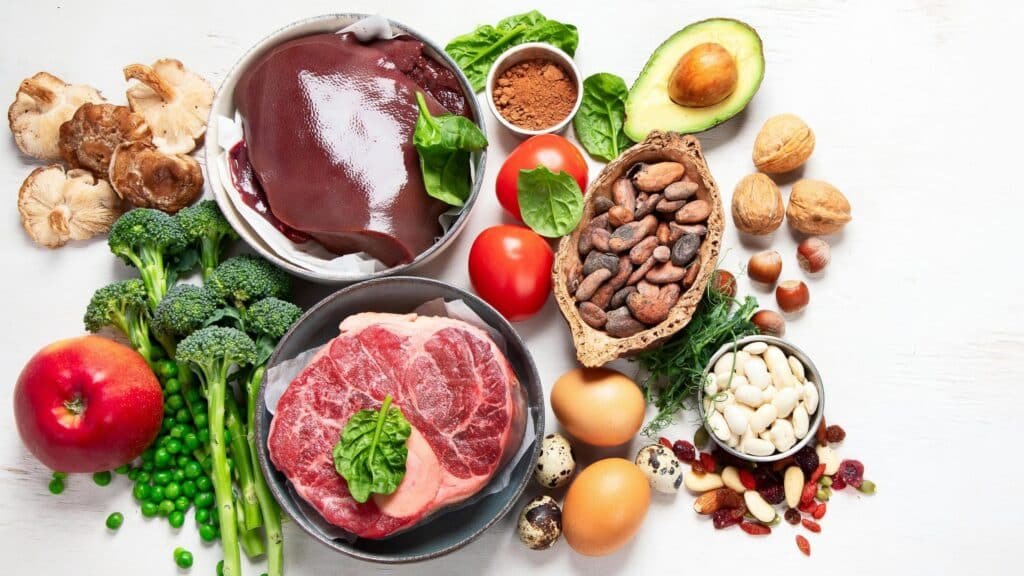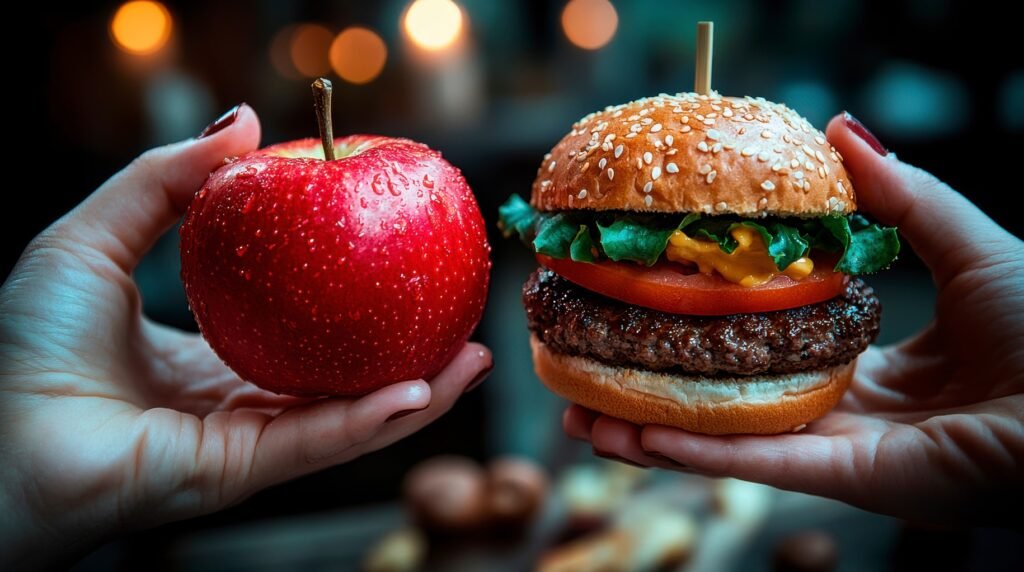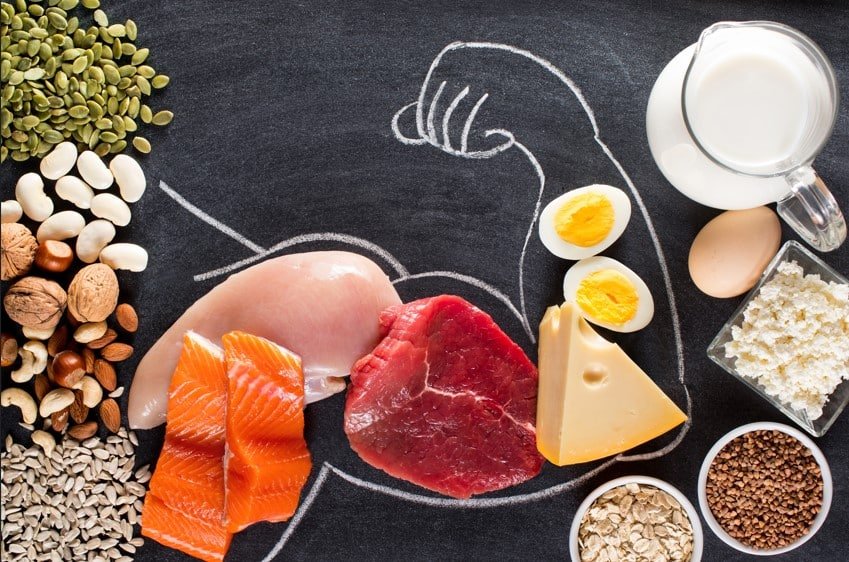Share on
Are you looking to pack on some serious muscle mass? Well, buckle up, because we’re about to dive into the nitty-gritty of calorie consumption for muscle gain. In this comprehensive guide, we’ll explore the importance of calorie intake, macronutrient ratios, protein requirements, meal frequency, and progressive overload. By the end, you’ll have all the knowledge you need to fuel your gains and become a muscle-building machine!
Key Takeaways
- To gain muscle, you need to consume more calories than your body burns (calorie surplus)
- Aim for a calorie surplus of 2,500 to 2,800 calories per week to gain one pound of lean muscle mass
- Balance your macronutrients: 45-60% carbohydrates, 30-35% protein, and 15-30% fat
- Consume 1 to 1.5 grams of protein per pound of body weight
- Eat 5-6 meals per day, with at least 20-30 grams of protein in each meal
- Gradually increase your calorie surplus and weightlifting intensity over time (progressive overload)
Table of Contents

Understanding Calorie Needs for Muscle Gain
Calorie Surplus: The Key to Muscle Growth
If you want to build muscle, you need to eat more calories than your body burns. This is known as a calorie surplus. When you consume extra calories, your body has the energy it needs to repair and grow muscle tissue after intense workouts. Some research suggest, to gain one pound of lean muscle mass, you should aim for an excess of 2,500 to 2,800 calories per week. That’s right, you get to eat more – just don’t go overboard on the pizza and ice cream!
Factors Affecting Calorie Needs
Now, before you start stuffing your face with everything in sight, it’s important to note that calorie needs can vary based on several factors. If you’re a beginner lifter, you may not require a higher calorie surplus compared to an advanced lifter. This is because your body is more responsive to muscle growth stimuli when you first start lifting weights. Additionally, your body composition plays a role in determining your calorie needs. If you have a higher body fat percentage, you may need to adjust your calorie intake to ensure you’re gaining muscle, not just fat.
Average Calorie Intake for Bodybuilders
So, how many calories should you be consuming? Per my personal experience, the average calorie intake for bodybuilders during the bulking phase is around 3,800 calories per day for men and 3,200 calories per day for women. Keep in mind that these are just averages, and your individual needs may vary based on factors like your age, height, weight, and activity level.

Macronutrient Ratios for Muscle Growth
Balancing Carbs, Protein, and Fat
It’s not just about how many calories you consume; it’s also about the quality of those calories. To support muscle growth and overall health, you need to balance your macronutrient ratios. Macronutrients are the three main categories of nutrients: carbohydrates, protein, and fat. Each plays a crucial role in muscle building and recovery.
Recommended Macronutrient Percentages
Per the scientific literature, the recommended macronutrient percentages for muscle gain are:
- Carbohydrates: 45-60% of total calorie intake
- Protein: 30-35% of total calorie intake
- Fat: 15-30% of total calorie intake
Carbohydrates provide energy for intense workouts and help replenish glycogen stores post-exercise. Protein is essential for muscle repair and growth, while healthy fats support hormone production and overall health.
| Macronutrient | Recommended Percentage |
|---|---|
| Carbohydrates | 45-60% |
| Protein | 30-35% |
| Fat | 15-30% |

Protein Intake for Muscle Growth
The Building Blocks of Muscle
Protein is the star of the show when it comes to muscle growth. It provides the amino acids necessary for muscle protein synthesis, which is the process of repairing and building new muscle tissue. Without adequate protein intake, your gains will be limited, and you may even lose muscle mass.
Recommended Protein Intake
So, how much protein do you need? The International Society of Sports Nutrition recommends aiming for 1 to 1.5 grams of protein per pound of body weight. For example, if you weigh 150 pounds, you should consume between 150 and 225 grams of protein per day. Additionally, Healthline suggests that for every pound of body weight, you should consume 18 calories per pound to maintain weight and add 500 calories to this intake for muscle gain.
Protein Supplement Guide
Need a recommendation on Protein Powder? No worries, use our A.I. protein guide below to get the best available options.

Meal Frequency and Timing
Fueling Your Gains Throughout the Day
To support muscle growth, you need to keep your body in a positive nitrogen balance. This means consuming protein regularly throughout the day. Eating frequently helps maintain the high calorie intake necessary for muscle gain.
Recommended Meal Frequency and Protein Content
Aim for 5-6 meals per day, with at least 20-30 grams of protein in each meal. This ensures that your body has a steady supply of amino acids for muscle repair and growth. Don’t worry; you don’t have to cook a full meal every time. Protein shakes, snacks, and meal prep can make hitting your protein targets more convenient.

Progressive Overload and Adjustments
Challenging Your Muscles for Continuous Growth
Building muscle isn’t just about eating more; you also need to challenge your muscles with progressive overload. This means gradually increasing the weight, sets, or reps in your workouts over time. As your muscles adapt to the current workload, you need to provide a new stimulus for continued growth.
Adjusting Calorie Intake Based on Progress
As you progress in your muscle-building journey, you may need to adjust your calorie intake based on your results. If you find that your body fat percentage is increasing too much, consider reducing your calorie surplus slightly. On the other hand, if you’re not seeing the muscle gains you want, you may need to increase your calorie intake further. Monitor your progress regularly and make adjustments as needed.
Conclusion
Building muscle takes dedication, hard work, and the right fuel. By consuming a calorie surplus, balancing your macronutrients, and eating enough protein, you’ll be well on your way to achieving your muscle-building goals. Remember to gradually increase your calorie intake and weightlifting intensity over time, and don’t be afraid to make adjustments based on your progress.



